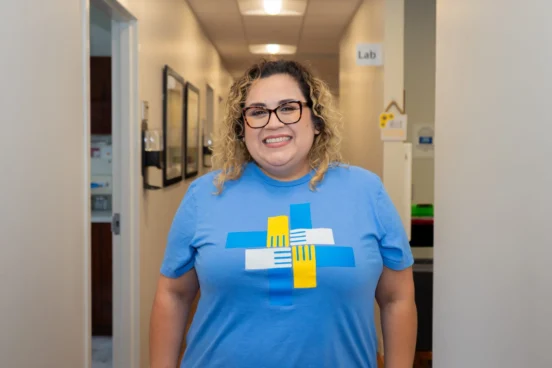

How to Talk to Your Doctor
You are an expert in your own experience, but too often patients complain that they don't think their doctor is listening to them. By preparing ahead of time, you may be able to change this dynamic.
By Caitlin Donovan
After financial concerns, the question I probably get the most is, “How do I get my doctor to listen to me?” It’s easy to get shy in the clinical setting; further, because even the most well-meaning doctor is still a real person, most likely overscheduled, who may unintentionally miss your cues.
According to our surveys, 25% of patients say that their docs never asked them about what mattered most to them. 11% said that the last time they visited their doctor, they didn’t even have time to discuss their most pressing health care concerns.
But ultimately, these conversations that don’t happen may be the most significant thing about your appointment. When a doctor doesn’t listen to a patient, an expert is being shut out of the room. Even though the doctor has the medical degree, as a patient, you are an expert in your own body, your own experience and your own outcome goals. Without this information, care at best is less than optimal. At worst, you can be misdiagnosed or not diagnosed at all. Your symptoms or condition can worsen.
We should also be aware that women are more likely to have our claims and experiences ignored. Further, we know that people of color face increased barriers to accessing care. Women of color in particular report that their concerns were dismissed by their providers, and research shows that they’re systemically and disproportionately under-treated for pain. Serena Williams has even spoken about how her doctors didn’t want to listen to her when she told them she was at risk for blood clots and needed a CT scan after she gave birth to her daughter. And she’s the GOAT!
Our Trust and Equity Project is devoted to building awareness of the importance of trust while improving storytelling and active listening skills for all members of the health care team. I’d love to encourage you to get involved in that project. But as we work together there, here’s some tips for the next time you’re getting ready for an appointment:
- Advocate for yourself like you would for your child or a dear loved one. We tend to be shy about speaking up on our own behalf, especially if we’re shivering in a paper gown in front of a doctor. But do it anyway. You need a doctor who understand you as an individual, not just as a collection of symptoms.
2 Give your biggest concerns upfront. One of the biggest factors is always going to be time. Your doctor may be rushed, and your job as a patient is to make the best use of the limited time you have, and to demand more if you need it. It may be helpful to explain your symptoms to the nurse practitioner or physicians assistant before you see the doctor. You may feel more comfortable around this person, and even if you have to repeat yourself later, saying something twice is double the chance that it’ll be addressed.
3 Before your visit, make a list. Write down everything you want to talk to your doctor about, and make sure to bring up whatever is most important to you at the beginning of the visit. It’s more likely to be addressed that way.
4 Bring an advocate. If you’re shy, or you feel like your doctor won’t listen to you, bring someone else to your appointment to advocate for you. Choose someone who can be diplomatic yet assertive. Make sure they know you well. Before your appointment, review the points you want to make sure you make and go over the symptoms you’ve been experiencing. One positive aspect to telehealth appointments, too, is that you may be able to bring someone in who doesn’t live near your appointment, like a family member in another state.
5 Providers need to emphasize communication skills as essential. One of the most important things to do to address this issue is to make sure that doctors are being educated in communication skills. Patient-physician relationships need to be a partnership, and it will work best when both sides are working on their communication skills. Visit our Trust and Equity Project for more information.


